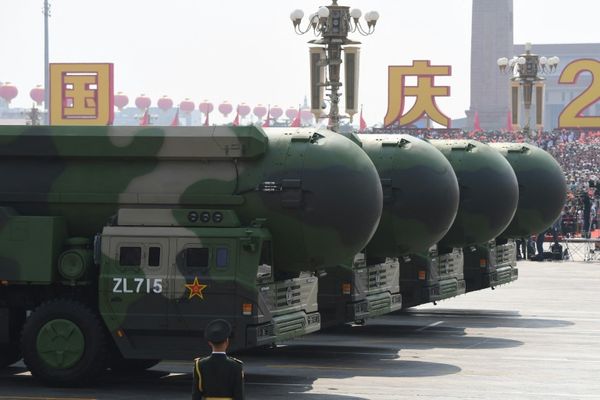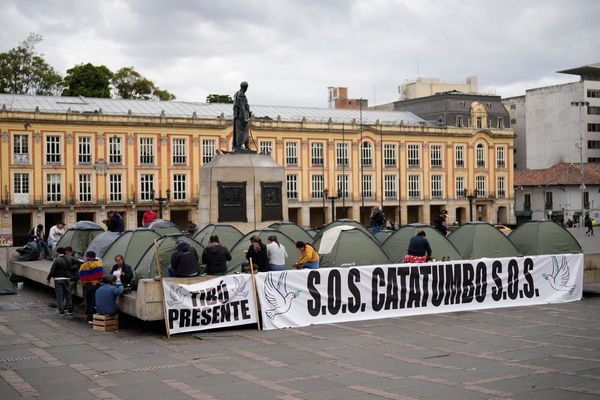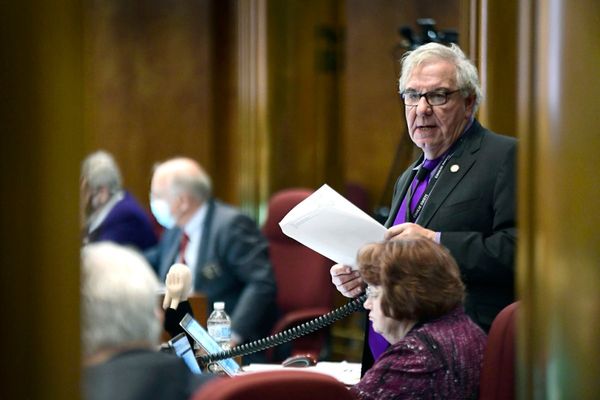
Donald Trump set the business and political world alight late on Monday. The incoming president said he would impose a 25% tariff on goods from Mexico and Canada and hit China with more levies on day one of his term.
“This Tariff will remain in effect until such time as Drugs, in particular Fentanyl, and all Illegal Aliens stop this Invasion of our Country!” he wrote on Truth Social.
Scott Harris has been here before. Eight years ago Catoctin Creek, the Virginia whiskey distillery he runs with his wife, Becky, was generating 11% of its sales in Europe – and expecting to more than double its business there the next year. Then the trade war kicked in.
After Trump imposed steep tariffs on foreign steel and aluminum, the European Union hit back with retaliatory duties, including 25% on American whiskey. “That 11% went to zero,” recalled Harris.
While that initial wave of tariffs was repealed, today Catoctin Creek has “no meaningful business” left in Europe, he said. “A few thousand dollars, but nothing to speak of.”
Trump’s return to power sets the stage for a new trade war. The president-elect campaigned on a pledge to impose sweeping tariffs in a bid to revitalize the US economy. Officials in key markets are already considering if, and how, they would retaliate.
Manufacturers across the US are bracing for disruption – and warn their customers could be hit, too.
‘The most beautiful word’
Proponents of tariffs, including Trump and his incoming commerce secretary, Howard Lutnick, have argued they will make America great again by reviving its industrial heartlands and reshoring manufacturing.
The president-elect and his allies have long argued tariffs can help to reduce the sizeable US trade deficit, with the value of what it imports from overseas far greater than what it exports to the world.
But while Trump has suggested that “tariff” is “the most beautiful word in the dictionary”, many Americans fear they will increase prices, and US firms are worried.
“If you want a poster child for why tariffs don’t work, you just have to look at our industry,” said Nate Herman, of the American Apparel & Footwear Association (AAFA). He pointed to the Smoot-Hawley Tariff Act of 1930, which hiked tariffs on hundreds of imports in a bid to boost multiple US industries.
Today, 97% of clothes and shoes sold in the US are imported. Reshoring that production would be hard, according to Herman, who said domestic apparel and footwear factories have an “incredibly hard time” finding workers.
“None of the materials that go into a shoe or a shirt are made here any more,” he added. “If you’re going to manufacture here, you’re going to import most of the materials that are needed to make the shoe or the shirt.”
Even the billionaire financier Ken Griffin, a Republican megadonor, said last week he was “gravely concerned” that the rise of tariffs would put the US “on a slippery slope towards crony capitalism”. Companies enjoy a “momentary sugar rush” when duties remove overseas competition, he suggested, only to become complacent and less competitive on the world stage.
You don’t have to go back a century to gauge the impact of a vast escalation in tariffs. US companies faced significant disruption the last time duties were imposed under Trump.
Prevelo, a manufacturer of kids’ bicycles based in California, was making its bikes in China when Trump first took office and hit the country with steep tariffs. It shifted manufacturing to Taiwan as a result, and then also started making bikes in Cambodia and Thailand.
The US accounts for the “vast majority” of Prevelo’s sales, but the countries it uses for manufacturing are “kind of the only place to have bikes made right now”, according to Jacob Rheuban, its founder.
Firms like Prevelo rushed to get orders in before tariffs were imposed, in a bid to stave off a dramatic rise in costs. “I’m a little worried that something like that might happen again,” said Rheuban.
For Prevolo to assemble bikes in the US, it would need access to all the required parts. But a blanket tariff on all overseas goods – without exemptions for bike parts – would make that more expensive. “I don’t think that tariffs alone are going to bring manufacturing back to the United States without other initiatives,” said Rheuban.
‘You will get runaway inflation’
In the apparel and footwear industry, where prices are typically flat or slightly lower each year, prices have in fact risen between 2% and 4% each year for the past six as trade tensions and the pandemic hit hard.
Now “we are extremely worried” Trump’s proposed new tariffs will lead to “two, three, four, five times the inflation we’ve seen over the past six years”, said Herman of the AAFA. “It’s an extremely huge concern.”
While the president-elect repeatedly pledged before the election to draw a line under inflation, “the exact opposite will happen” if he introduces tariffs as wide-ranging as he has threatened, cautioned Herman. “You will get runaway inflation, and possibly send the economy into a bad place – possibly a recession.”
Blanket tariffs would have “no benefit”, according to Errico Auricchio, president of BelGioioso, a Wisconsin-based cheese manufacturer, who believes that duties in general “damage” the economy.
“If we were to improve our economy, more companies should start, more companies should be allowed to produce things,” he said. “If you stop importing cars, you don’t improve the situation with car manufacturing” in the US.
“So much of what we get in the US, from PlayStations to avocados … are from different places,” said Harris of Catoctin Creek. “We’re going to see prices on all kinds of goods that people don’t realize come from somewhere else go through the roof, if they do it.”
Should inflation surge, “maybe there’ll be a great protest” which will force the Trump administration to reconsider, Harris suggested. But he’s been here before. “I’m not holding my breath for that,” he added.
Election threats ‘beyond reality’
Trump’s Truth Social tariff tirade may be bluster, and Auricchio, at least, is confident there “won’t be a disaster” under a second Trump administration. “Threats during the election time are beyond reality,” he said. “I don’t believe Trump wants to disrupt world trade.”
As new economic officials prepare to take office in January, Auricchio is already tired of the speculation around their plans. “I would rather see what happens, and then react,” he said. “I think there is over-talking. We should be making good cheese.”
But with the threat of steep costs now looming, some business leaders are struggling to simply focus on making good cheese, or bikes, or whiskey, while awaiting news.
“Businesses love certainty,” said Harris. “Even if it’s bad news, at least we know. This era of uncertainty we’re about to enter is probably the worst.”
Whatever happens, firms need time to prepare, according to Rheuban, who estimated that it takes “probably 18 months” to make important changes to his supply chain. “The more notice that we have, the more time it gives us to react,” he said. “But I’m pessimistic, just because of the way it happened last time.”







